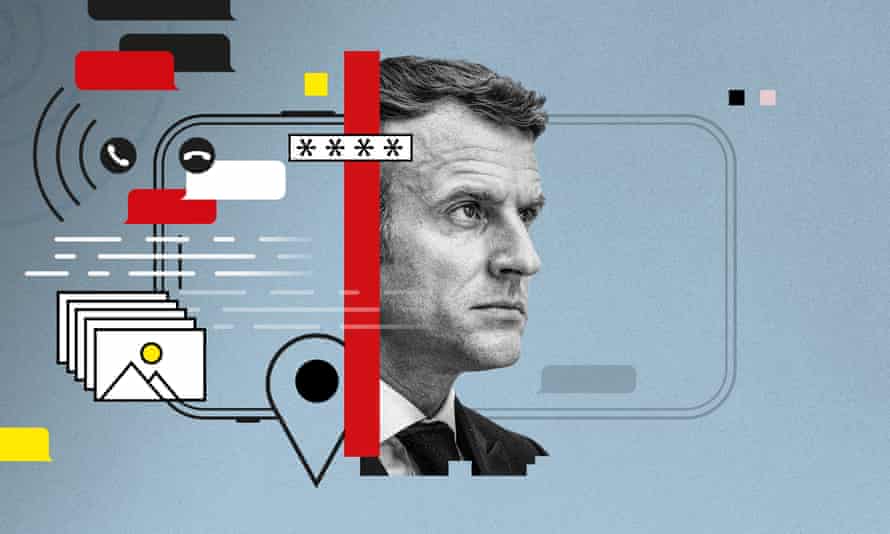French president reportedly spoke to Naftali Bennett to ensure ‘proper investigation’ after Pegasus project

Emmanuel Macron has reportedly spoken to the Israeli prime minister, Naftali Bennett, to ensure that the Israeli government is “properly investigating” allegations that the French president could have been targeted with Israeli-made spyware by Morocco’s security services.
In a phone call, Macron expressed concern that his phone and those of most of his cabinet could have been infected with Pegasus, hacking software developed by the Israeli surveillance firm NSO Group, which enables operators of the tool to extract messages, photos and emails, record calls and secretly activate microphones from infected devices.
The leaked database at the heart of the Pegasus project includes Macron’s mobile phone number.
NSO has said Macron was not a “target” of any of its customers, meaning the company denies he was selected for surveillance using Pegasus. The company says that the fact that a number appeared on the list was in no way indicative of whether that number was selected for surveillance using Pegasus.
The Pegasus project could not examine the mobile phones of the leaders and diplomats, and could therefore not confirm whether there had been any attempt to install malware on their phones.
The Macron-Bennett phone call reportedly took place on Thursday, but was first reported by Israel’s Channel 12 News on Saturday evening after the end of Shabbat, the Jewish day of rest.
The prime minister’s office has declined to comment on the phone call or the two leaders’ conversation. According to Channel 12, an unnamed source said Bennett had stressed that the alleged events occurred before he took office in May, and that a commission was examining whether rules on Israel’s export of cyberweapons such as Pegasus should be tightened.
The Pegasus project – a consortium of 17 media outlets, including the Guardian – revealed last week that government clients around the world have used the hacking software sold by NSO to target human rights activists, journalists and lawyers.
The investigation has been based on forensic analysis of phones and analysis of a leaked database of 50,000 numbers, including that of Macron and those of heads of state and senior government, diplomatic and military officials, in 34 countries.
In multiple statements, NSO said the fact a number appeared on the leaked list was in no way indicative of whether it was selected for surveillance using Pegasus. “The list is not a list of Pegasus targets or potential targets,” the company said. “The numbers in the list are not related to NSO Group in any way.”
But the list is believed to provide insights into those identified as persons of interest by NSO’s clients. It includes people whose phones showed traces of NSO’s signature phone-hacking spyware, Pegasus, according to forensic analysis of their devices. The analysis was conducted by Amnesty International’s security lab, which discovered traces of Pegasus-related activity on 37 out of 67 phones that it analysed.
